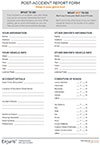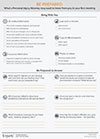Additional routes beyond worker’s compensation if you’ve been hurt on a construction site
If you get hurt while on the job in Florida, there are many rules you must follow if you want to receive proper compensation.
Working on a construction site can invite any number of hazards. Florida is famous for a few different industries – agriculture, tourism, international trade and more – and any one of these can result in an industrial injury that can range from bad to terrible. Really, are there any good industrial injuries? No.
Once you have experienced a construction site injury, you might not know how to proceed with a lawsuit, how to talk to your boss or what is even appropriate. Here is a primer on what kind of damages you can receive and how much you might potentially be awarded for your construction injuries.
Federal regulations and OSHA
OSHA stands for the Occupational Safety and Health Administration. This organization is responsible for all construction sites and the workers employed therein; they also draft regulations that are supposed to protect employees, though despite their best efforts, injuries and fatalities do still happen.

Sample post-accident report form to keep in your glove box - fill out at the scene or as soon as you can after a car accident
Download in PDF format
It is OSHA’s job to investigate workplace injuries and fatalities to see if employers were using shoddy business practices or cutting corners to keep costs low. Most employees think that this puts the organization on their side, but it doesn’t automatically do so; OSHA does keep in mind that the worker might have caused his or her own injury.
These are the most common injuries and deaths that occur on construction sites:
- Back and neck injuries
- Hearing loss (can be caused by loud noises, explosions, etc.)
- Slip and falls
- Electrocution
- Crane accidents
- Scaffolding accidents
- Car accidents
- Drowning
- Fires
- Welding accidents
- Shoring accidents
- Explosions
- Dangerous or defective equipment
- Hazardous waste exposure
The worker’s compensation system in Florida
If a worker in Florida becomes injured, he must tell his employer as soon as possible. State law requires that an employee report an injury within 30 days of it occurring.
After that, the employer will notify the insurance company within the prescribed period of time, at which point the worker will be told which company-approved doctor he can see for his injuries. There are specific doctors who are approved; personal doctors, though preferred, will not be allowed during this process.

Sample accident journal/diary to help you document the effect on your daily life
Download in PDF format
Certain benefits may be approved after that doctor’s visit, such as:
- Indemnity benefits: If an employee is not able to work for more than seven days, he should be able to receive money to partly replace what he is not able to earn after his accident.
- Temporary total disability: If the employee’s doctor says he cannot work, he should receive benefits that equal 66 and 2/3% of his regular wages at the time he was injured, to be paid on the eighth day he lost time from work. If the injury is critical, he may receive 80% of regular wages for up to six months after the accident.
- Temporary partial disability: If the employee can return to work, but he cannot earn the same amount of wages he earned at the time he was injured.
- Impairment benefits: This is Maximum Medical Improvement, or when a doctor believes that an employee has healed as much as he is going to.
Sometimes, however, claims are denied because a doctor believes that the employee is able to work or that he is faking his claims. This is when you would want to meet with a qualified Florida worker’s compensation attorney to review your case and see if you can proceed with a claim against your employer.
Third party claims
A construction worker can attempt to sue an independent third party for injuries he suffered, even if worker’s compensation benefits have been paid out.
This, of course, can get complicated. This employee can potentially be in two systems at once – the worker’s compensation system and the traditional court system as well. The latter suit would be a traditional personal injury negligence case.
To review, a negligence case is when
- The defendant owed an employee a duty of care;
- The defendant violated the duty of care;
- The violation caused injuries to the employee; and
- The injuries resulted in damages to the employee.
A third party could also be sued for product liability if a defective machine caused injury to a worker. For instance, if an employee were trying to fix a machine that surged when turned on and thus amputated his arm, that would most definitely be a defective product.
Wrongful death suits in Florida construction
An employee’s family can bring a suit on his or her behalf if the worst should happen at a jobsite.
Wrongful death claims need to be filed within two years of the date of death. These types of damages might include the value of lost wages the decedent would have earned; the value of other benefits lost as a result of the employee’s premature death (such as retirement benefits or life insurance); the loss of affection, guidance, love, companionship and assistance; and perhaps even punitive damages.
Florida follows a specific set of rules, so if you don’t want your lawsuit to be thrown out before you start, it would be prudent to speak with a qualified attorney who knows the ins and outs.
What to look for in a Florida construction site accidents attorney
Make sure to look for an attorney who makes you feel calm, who puts your needs first and who devotes time to your case. Read a good number of reviews and ask people who have used construction site attorneys before.

A worksheet to prepare for your first meeting with a personal injury attorney – what to bring, what they'll ask
Download in PDF format
If you need someone to assist you in this process, read some of the resources below and speak with some of Enjuris listed attorneys in Florida.
Resources to help you hire the best Florida worker’s compensation/construction site lawyer
- Choosing a personal injury attorney – interview questions
- Preparing to meet with a personal injury attorney
- When do you NOT need an attorney after an accident?
- How to talk to a lawyer
- How damages are calculated
- Negotiating lawyers’ fees - how do accident lawyers charge? Are there any hidden costs?
See our guide Choosing a personal injury attorney.




